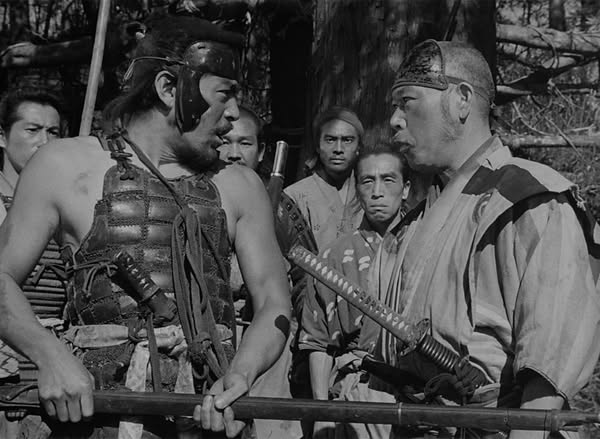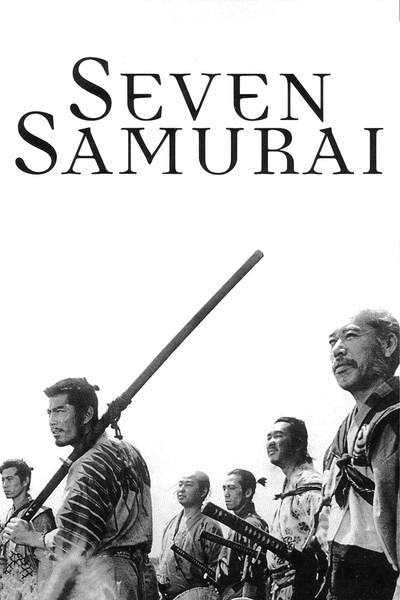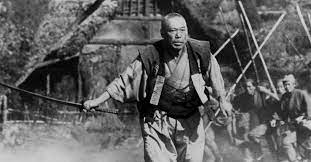Seven Samurai (1954)

“Seven Samurai,” directed by Akira Kurosawa and released in 1954, is a seminal work in cinema that has influenced countless films and filmmakers across the globe. This epic jidaigeki (period drama) is often regarded as one of the greatest films of all time, celebrated for its storytelling, character development, and innovative cinematography.
The plot is set in 16th-century Japan and follows a poor village that is repeatedly raided by bandits. In a desperate bid to protect their home, the villagers decide to hire samurai to defend them. They recruit seven warriors, each with unique skills and backgrounds, who come together to train the villagers and prepare for the impending attack.

The film is notable for its rich character development, showcasing the individual personalities of the samurai, including the wise leader Kambei (Takashi Shimura), the skilled swordsman Katsushiro (Isao Kimura), and the fierce warrior Shichiroji (Yoshio Inaba). The diverse backgrounds and motivations of the characters add depth to the narrative, creating a powerful ensemble that resonates with audiences.
Kurosawa’s direction is masterful, employing dynamic action sequences, innovative camera angles, and meticulous attention to detail. The climactic battle scenes are particularly iconic, blending intense action with emotional weight. The film’s cinematography, by Asakazu Nakai, captures the beauty of the Japanese landscape, contrasting the serenity of nature with the violence of conflict.

“Seven Samurai” explores themes of honor, sacrifice, and the human condition. The samurai embody ideals of loyalty and courage, while the villagers represent resilience in the face of adversity. The film raises questions about duty, community, and the moral complexities of violence.
The screenplay, co-written by Kurosawa and his collaborators, is rich with dialogue and philosophical musings, further enhancing the film’s depth. The pacing allows for a gradual build-up of tension, leading to a gripping climax that leaves a lasting impact.

Overall, “Seven Samurai” is a landmark film that has left an indelible mark on cinema. Its influence can be seen in countless works across various genres, and its exploration of universal themes continues to resonate with audiences today. The film is not only a masterpiece of storytelling and craftsmanship but also a profound reflection on the complexities of human nature and the fight for justice.











